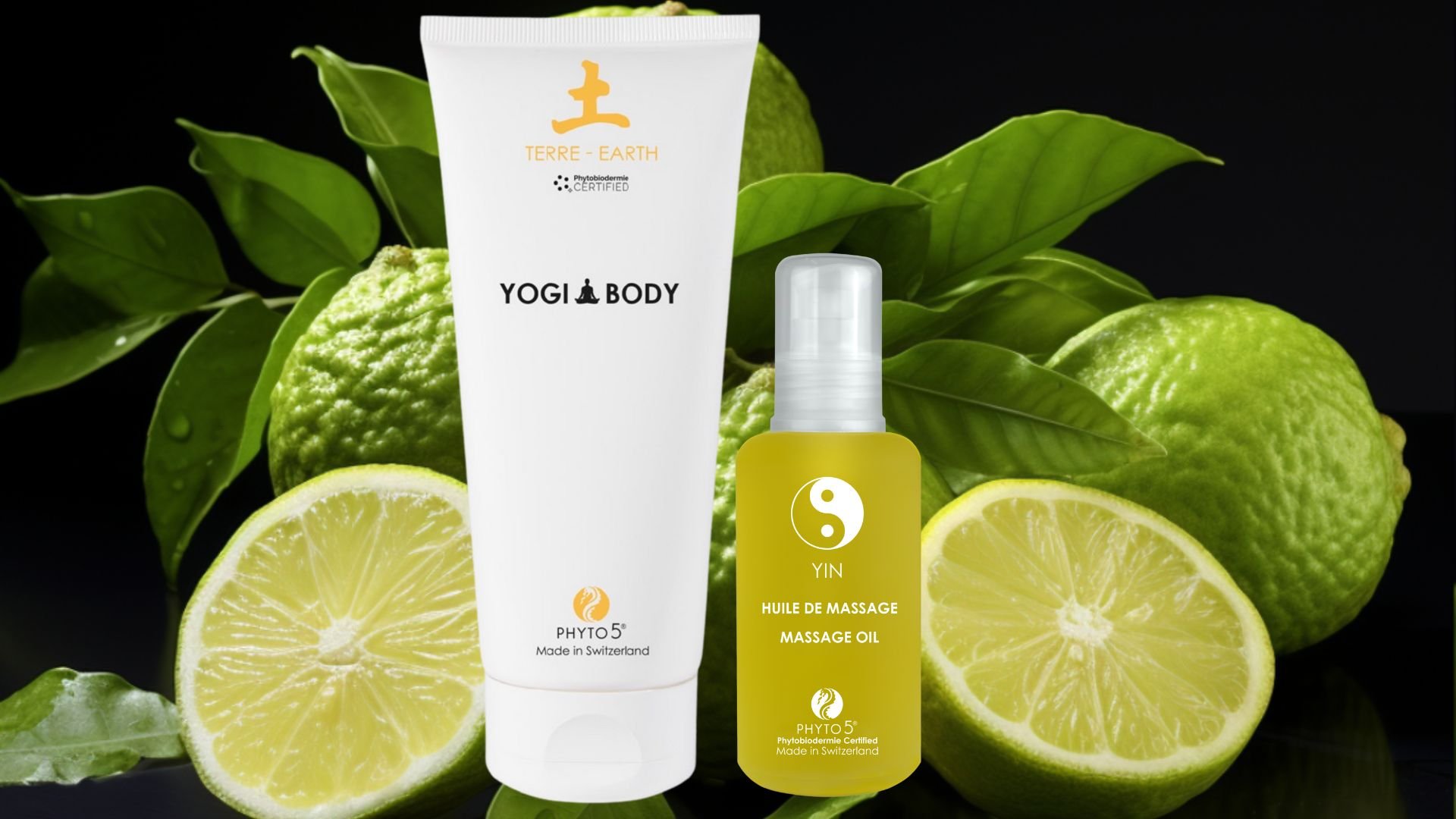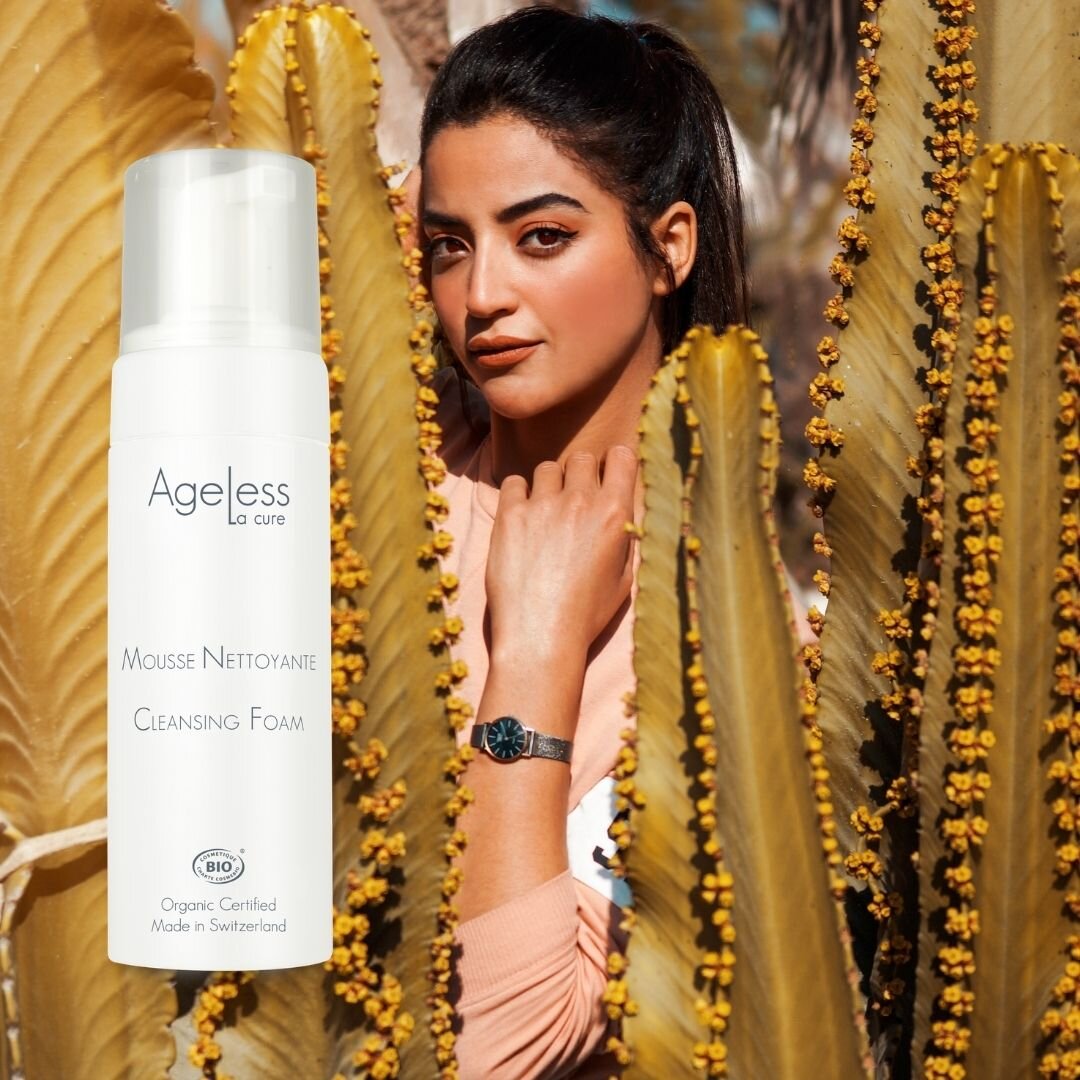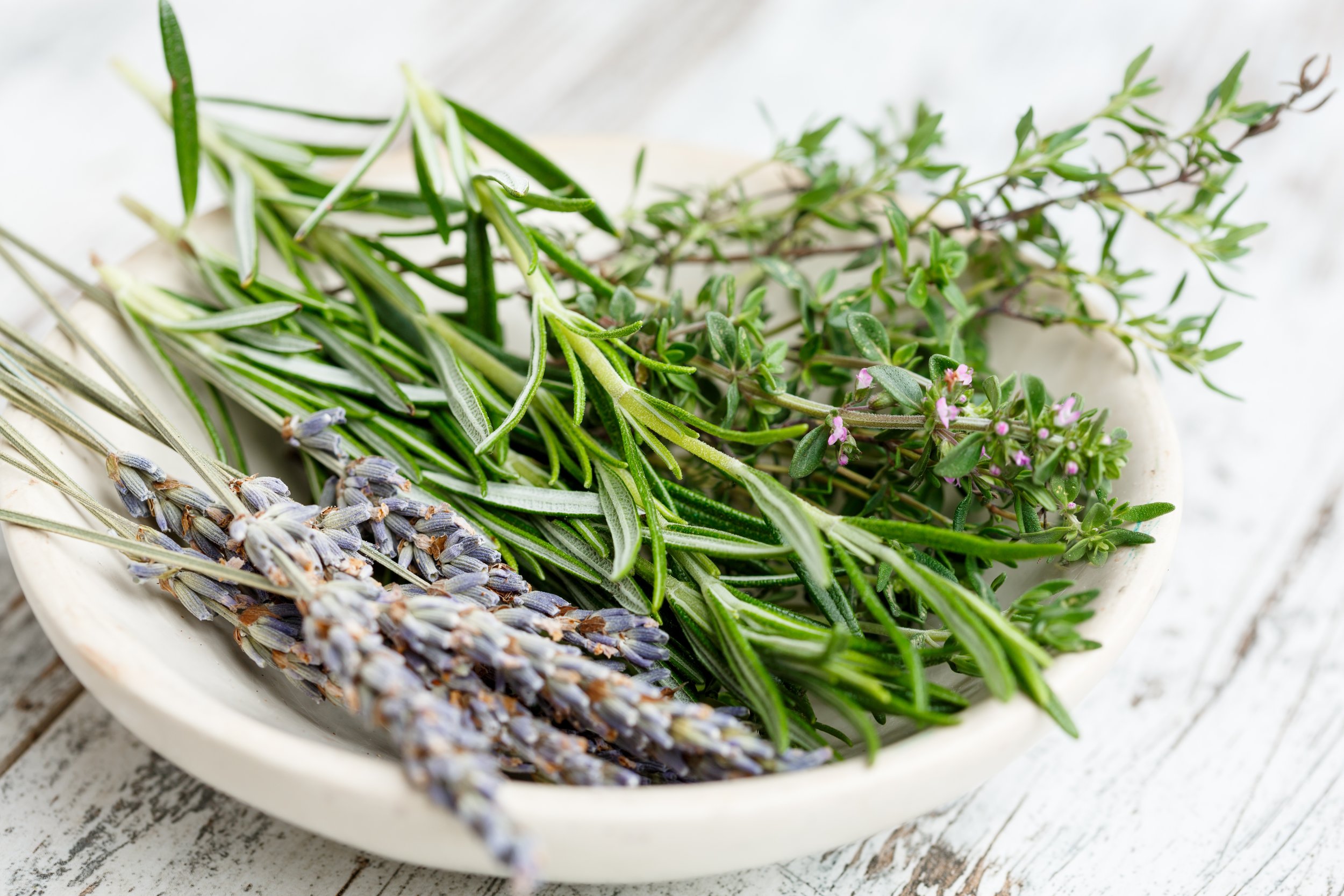Bergamot essential oil (Citrus bergamia) is an oil widely used in cosmetics not just because of its cooling and refreshing nature but because of the wide array of skin and health enhancing benefits it offers. On the physical level, bergamot makes skin resistant to microorganisms that can compromise skin’s purity. This is one reason why PHYTO5 has formulated bergamot essential oil into Earth element Yogi Body Gel. On the mental/emotional level, bergamot is nervous tension relaxing. For this reason, bergamot essential oil can be enjoyed in PHYTO5’s organic certified Yin Massage Oil.
Partake of the mystique of quantum energetic formulated plant-based skincare for your exalted natural beauty and well-being. Subscribe for a discount promo code, plus get truly unique beauty tips and offers.
Bergamot is a type of orange although its exterior color is not orange at all. The fruit looks more like a lemon or lime than an orange. It is three to four inches in diameter and has a uniquely distinct scent and flavor—a combination of lemon and bitter orange. According to Alan Davidson's The Oxford Companion to Food (2nd ed.), unlike its other orange cousins, bergamot is too bitter to be eaten raw.
The essential oil of bergamot is a greenish to yellow clear thin and viscous liquid. It has a sparkling citrusy sweet green and fruity-floral odor. It’s cold expressed from the pericarp or peel of the fruit of the dwarf variety of the Seville orange tree.
Bergamot blossoms during the Winter and grows naturally in northern Italy in the Lombardy region but it’s commercially grown in the southern Italian region of Calabria. There are many small cultivators of bergamot throughout the world but more than 90% of the world’s production occurs in Calabria. Argentina and Ivory Coast production are a distant second and third to Italy.
Among all the citrus peel oils, bergamot essential oil is the most valuable.
Bergamot is almost exclusively grown for the production of essential oil and not for juice consumption although the fruit is an ingredient in traditional Mediterranean cooking.
Bergamot essential oil serves as flavoring for sweets, tobacco, Curaçao liqueur, teas (Earl Grey), baked goods, desserts, chewing gum and soft drinks.
More than 200 chemical constituents have been identified to make up bergamot oil including very many terpenes.(1)
For example, the terpene linalool in bergamot offers analgesic action while promoting relaxation and stress relief. This is in addition to linalool’s calming fresh, floral fragrance.
Bergamot essential oil is an excellent skin conditioner and soothing agent. It fosters healing and regeneration of skin and is all around beneficial to skin.
It is best suited for oily and acne prone skin because it makes skin resistant to microorganisms killing facial bacteria before skin has a chance to create blackheads and pimples. It also controls excess oil production. Conversely, bergamot will stimulate or balance sebaceous gland production if skin is too dry.
Because of its antiseptic and antibacterial properties, bergamot is utilized in the pharmacopoeia of a number of countries. The pharmaceutical industry also uses bergamot essential oil in sanitary preparations.
Bergamot essential oil has been successfully used to treat conditions like nicotine addiction, acne, ringworms, depression, out-of-balance stress response, urinary tract infection, fever, headaches, muscle aches, anxiety, insomnia, constipation, scars, body odor, cracked heels, wounds, coughs and colds (antiviral properties).
Bergamot essential oil is known to help fight skin conditions of acne, eczema,(2) cold sores, herpes, shingles, psoriasis, dark spots, dull and dry complexion, dandruff, seborrhea, and excessive perspiration.
The properties of bergamot are many:
analgesic
antidepressant (also helps relieve anxiety and unbalanced stress response)
antiseptic (mouth rinses that contain bergamot essential oil are especially beneficial to combat bad breath and infection)
slightly astringent
antispasmodic
cicatrisant (reduces or prevents appearance of scars)
digestive
deodorant
expectorant
febrifuge (fever inducing)
vermifuge (worm killing)
vulnerably (wound healing)
sedative
Bergamot essential oil should not be used by pregnant or breastfeeding mothers, children or persons with sensitive skin or sensitivity to ultraviolet light. Since bergamot makes skin more sensitive to ultraviolet light (phototoxic), bergamot accelerates tanning of the skin as do all citrus oils.
Bergamot as Spiritual and Emotional Healing Agent
A study with animals showed bergamot essential oil to affect hypothalamic-pituitary-adrenal activity by reducing the corticosterone(3) response to stress. Bergamot essential oil was found to create a balancing effect on the activity of the hypothalamus gland.
The hypothalamus gland is the center of our more intense emotions such as terror and rage. This gland works in synchrony with the pineal and pituitary glands to help regulate and balance hormonal cycles including natural sleep and wake cycles. It is believed that bergamot’s ability to balance natural sleep cycles may make the essential oil helpful for relieving symptoms of jet lag.
Bergamot Essential Oil and Lymph(4)
Bergamot essential oil helps reduce swelling in tissue by stimulating improved flow of lymph. It is very decongesting.
Earth element skincare by PHYTO5 has a primary function to support flow of lymph in the action of detoxification. This creates skin that is purer, normalized and more radiant.
“Metaphysically, the lymphatic system and immune system are related to a strong sense of self-worth and a feeling of ‘I can do it.’ When you doubt your ability to take care of yourself and lack confidence, your immune function can be affected. Energetically, your psychic defenses to protect against foreign invaders are lowered. Bergamot oil may be helpful for building morale and self-esteem and can help you to rebuild strength and regain self-confidence.” —K. G. Stiles in The Essential Oils Complete Reference Guide: Over 250 Recipes for Natural Wholesome Aromatherapy
Two Precautions When Using Bergamot Essential Oil
Never consume bergamot or any essential oil without it being properly diffused by a carrier oil.(5) Good carrier oils include fractionated coconut oil, apricot kernel or sweet almond oil. You must also know how to use bergamot essential oil in the right proportion to the carrier oil and this really should be left in the domain of a cosmetics chemist. This is because essential oils are highly concentrated. Bergamot essential oil is not only highly concentrated, it’s highly photosensitive.
Most essential oils that can be ingested—and bergamot essential oil is one of them—must be infused with a carrier oil and then only in very small and appropriate amounts. Any essential oil applied or consumed without delivery by means of a carrier oil may cause a healing crisis or at best, very uncomfortable symptoms. Essential oils are very potent and not all of them can be taken internally.
High grade and natural essential oils perfectly and precisely mixed in PHYTO5 skin and body care is a safe way to enjoy many of the benefits of a whole array of essential oils. The amount of bergamot essential oil in Earth element Yogi Body Gel and in Yin Massage Oil is determined by PHYTO5 expert chemists who know the proportions and manner of formulation to safely and healthily achieved the desire effect.
Because of adverse reactions called berloque dermatitis experienced by a number of people since the 1950s, much bergamot essential oil used today in the cosmetics industry is synthetically produced. Berloque dermatitis is a phototoxic reaction on the skin created by exposure to long-wave ultraviolet (UVA) radiation on bergapten, the only photoactive component of bergamot oil. This combination of exposure induces an intensification of both hyperpigmentation and melanin production in the skin.
Bergamot essential oil can easily be found on big box store shelves for aromatherapeutic purposes. But you may want to research if the bergamot essential oil you’re using is naturally grown and produced with integrity.
#####
Endnotes:
We have published two extensive articles on the topic of terpenes:
The Terpene: Most Fundamental Flavor, Fragrance and Healing Component of Essential Oils
Scent, Flavor and Healing Are Found In All Plants Because of Terpenes
for treating dry and not moist eczema
Corticosterone is a hormone secreted by the adrenal cortex in response to stress.
Lymph is a colorless fluid containing white blood cells, which bathes the tissues and drains through the lymphatic system into the bloodstream.
A carrier oil is used to dilute essential oils and absolutes before they are applied to the skin in skincare applications, massage and aromatherapy. They carry the essential oil onto the skin. Diluting essential oils is a critical safety practice when using essential oils because of the very high potency of quality essential oils. Essential oils used alone are volatile because they begin to dissipate as soon as they are applied. The carrier oil slows the rate of dispersion which varies based on how light or heavy the carrier oil is. Carrier oils often do not contain a concentrated aroma and they do not evaporate like essential oil. Excellent high integrity skincare products will use carrier oils that are completely natural and free from adulteration.
#####
Sources:
Kinai, Dr. Miriam, Bergamot Essential Oil. N.p., Booktango, 2013.
Zulpa, Amy. Essential Oils - The Ultimate Resource: A Beginner's Guide to the Use of Essential Oils. N.p., Jela Properties LLC, 2014.
deGroot, AntonC., and Schmidt, Erich. Essential Oils: Contact Allergy and Chemical Composition. United Kingdom, CRC Press, 2021.
Keller, Erich. Aromatherapy Handbook for Beauty, Hair, and Skin Care. United States, Inner Traditions/Bear, 1999.
Stiles, KG. The Essential Oils Complete Reference Guide: Over 250 Recipes for Natural Wholesome Aromatherapy. United States, Page Street Publishing, 2017.
Davidson, Alan. The Oxford Companion to Food. United Kingdom, Oxford University Press, 2014.
Perna, Simone et al. “Efficacy of bergamot: From anti-inflammatory and anti-oxidative mechanisms to clinical applications as preventive agent for cardiovascular morbidity, skin diseases, and mood alterations.” Food science & nutrition vol. 7,2 369-384. 25 Jan. 2019, doi:10.1002/fsn3.903



![Crème Perfection [Ageless Perfection Cream for hyperpigmentation]](https://images.squarespace-cdn.com/content/v1/56bfb037e321401183a80ec3/cb298a6f-227c-4fd7-9b18-a7adc3978ed2/perfection-cream-pigmentation-correction.png)

![Les 5 Secrets Crème et Sérum [Five Secrets facial Serum and Cream kit for a 3-week cure]](https://images.squarespace-cdn.com/content/v1/56bfb037e321401183a80ec3/965d2618-bd63-4cc2-b262-96e7cbe2152e/facial-serum-and-cream-kit-duo.png)













